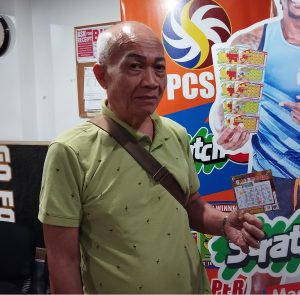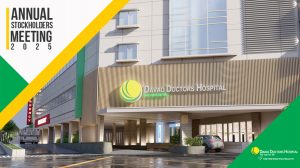The management of the lone five-star hotel in the city, Marco Polo Hotel, is doing double time work to sustain its rating by making it a lot fresher.
“Obviously, there is a lot of work to do,” Colin Healy, manager of the hotel, told TIMES last week, a month after the Department of Tourism gave the rating to the hotel,
Healy said the accolade is a “great launchpad” for the continue to build on as the management is looking at enhancing not only the aesthetics but also the services that it is offering its guests.
The hotel, as its way of looking fresher, has enhanced the lobby to make it “much fresher and brighter than it was prior,” he added as refurbishment works have also been ongoing in the meeting rooms, lounges and even the gardens.
At the lobby, the hotel added more lights, changed the carpet and in the process of replacing the furniture pieces.
Since the “arrival experience of the guests” is also important, he said, these efforts will provide its guests the feel of being welcomed.
“We are making strides on the improvements of the hotel,” said Mr. Healy, although he said he could not quantify the amount being invested in enhancing the facilities.
Last year, Francis R. Ledesma, president of the Halifax Hotel Davao Inc., owner of the hotel, said the company was investing about P80 million both for the 245-room hotel as well as for the training of its employees.
Healy said the efforts are directed at sustaining its importance to visitors as it has also become the landmark of the city.
“We understand that we are not the most modern hotel; however, we have the prestige, we have the mystique, and iconic building in the city and that is where we have to building our story,” he said, adding that his experience in old hotels in other countries, like in London where he was working for a hotel that is a century old but has been able to maintain its status as a go-to place for visitors.
On technology, Healy said the hotel wants to go paperless as “step by step we are using technology that is available.”
However, he admitted that since technology is very fast pace, there is no time frame for the hotel to eventually succeed in just using it for its benefit.
“The key is we have to think long-term (in adopting technology), not just short-term,” he said, adding that hotel will continue to look at what is available.
On how to improve the city as a tourist market, he said there is a need to improve key infrastructure facilities like the airport because there is a need to improve “the first impression is the gateway to the city of the inbound traffic.”
The way to open the city to tourists, he added, is for the industry to promote that the “city is open for business.”
Chelsea Logistics and Infrastructure Holdings Corp. of homegrown tycoon Dennis A. Uy has submitted an unsolicited proposal to improve the airport.
There is also a need for the tourism industry to continue putting the city on the tourism map, pointing out that even himself, before his arrival in the city, was not even aware of a how beautiful and tourism-friendly the city is.
“When I was in Metro Manila, I never knew that (Kadayawan festival),” he lamented, adding that as a country, there must be a consolidated effort to promote the tourism industry especially in areas outside the nation’s capital.
The good thing, he said, is that there has been connectivity that the tourism industry must expand it “to reach out to the wider public.”
“We have to become ambassadors (in promoting the city),” he said, pointing out that there is a need for the industry to promote experiences like, just by crossing the road leading to the hotel, the visitors can taste cheap but better fruits.


